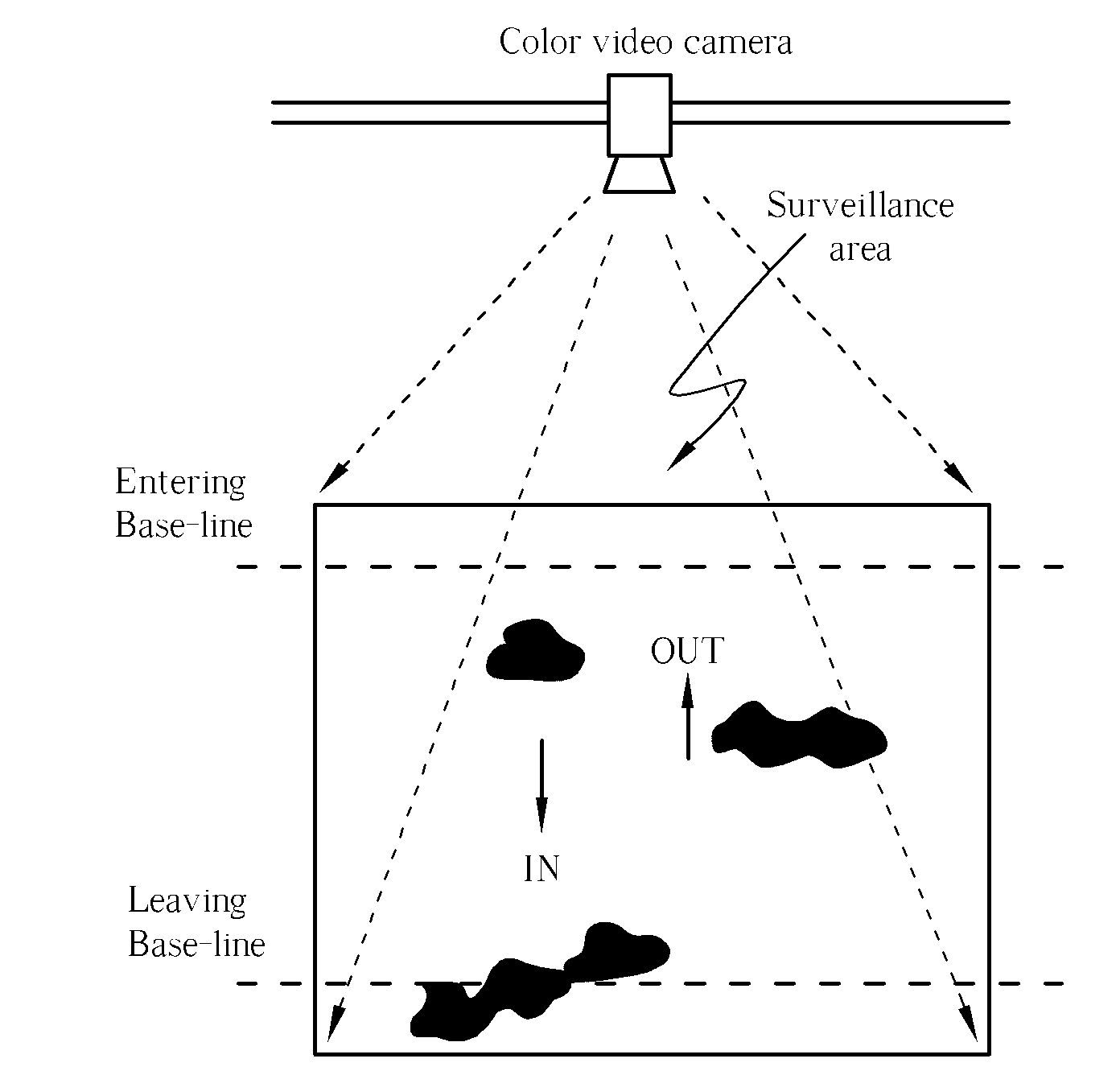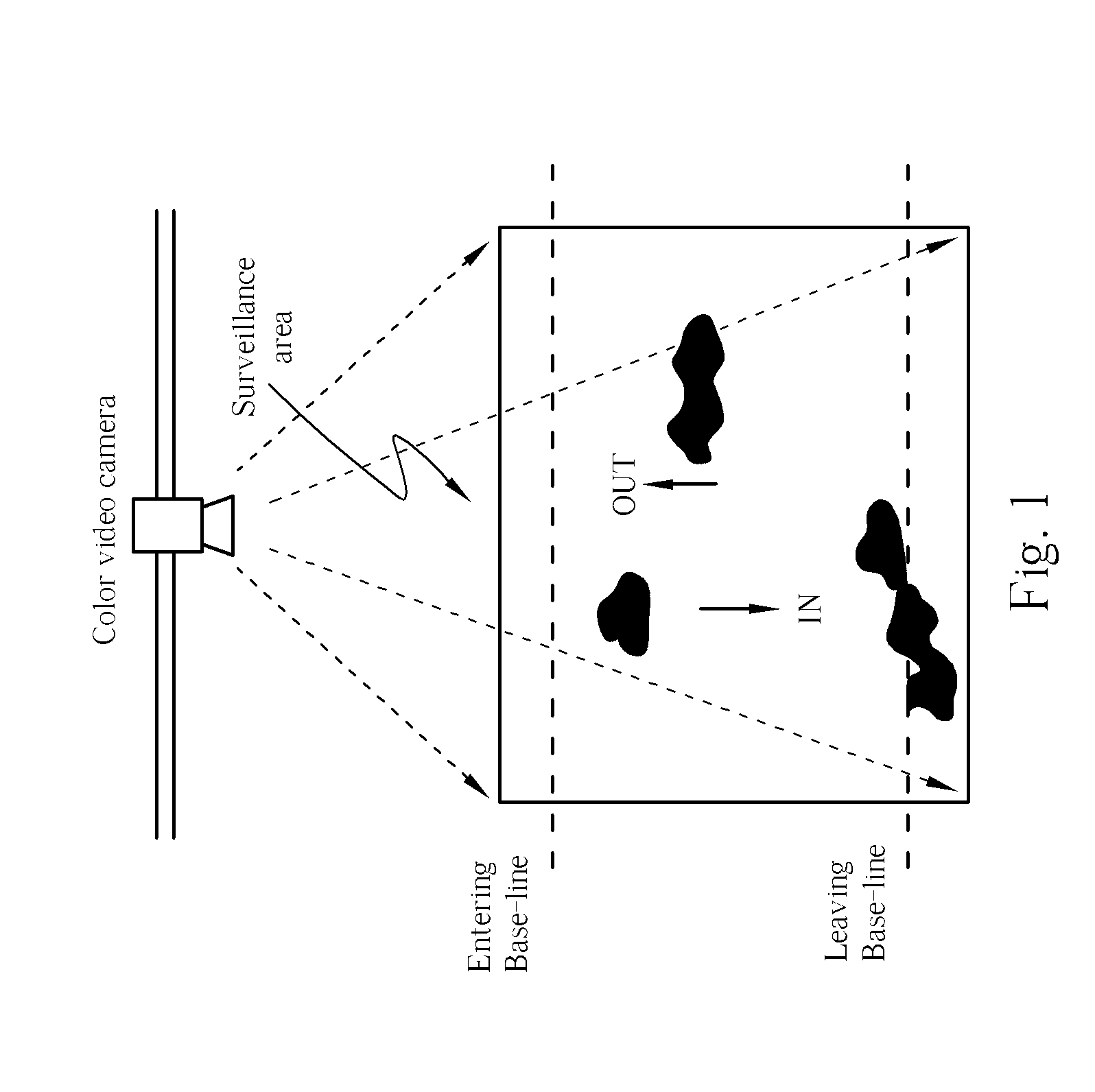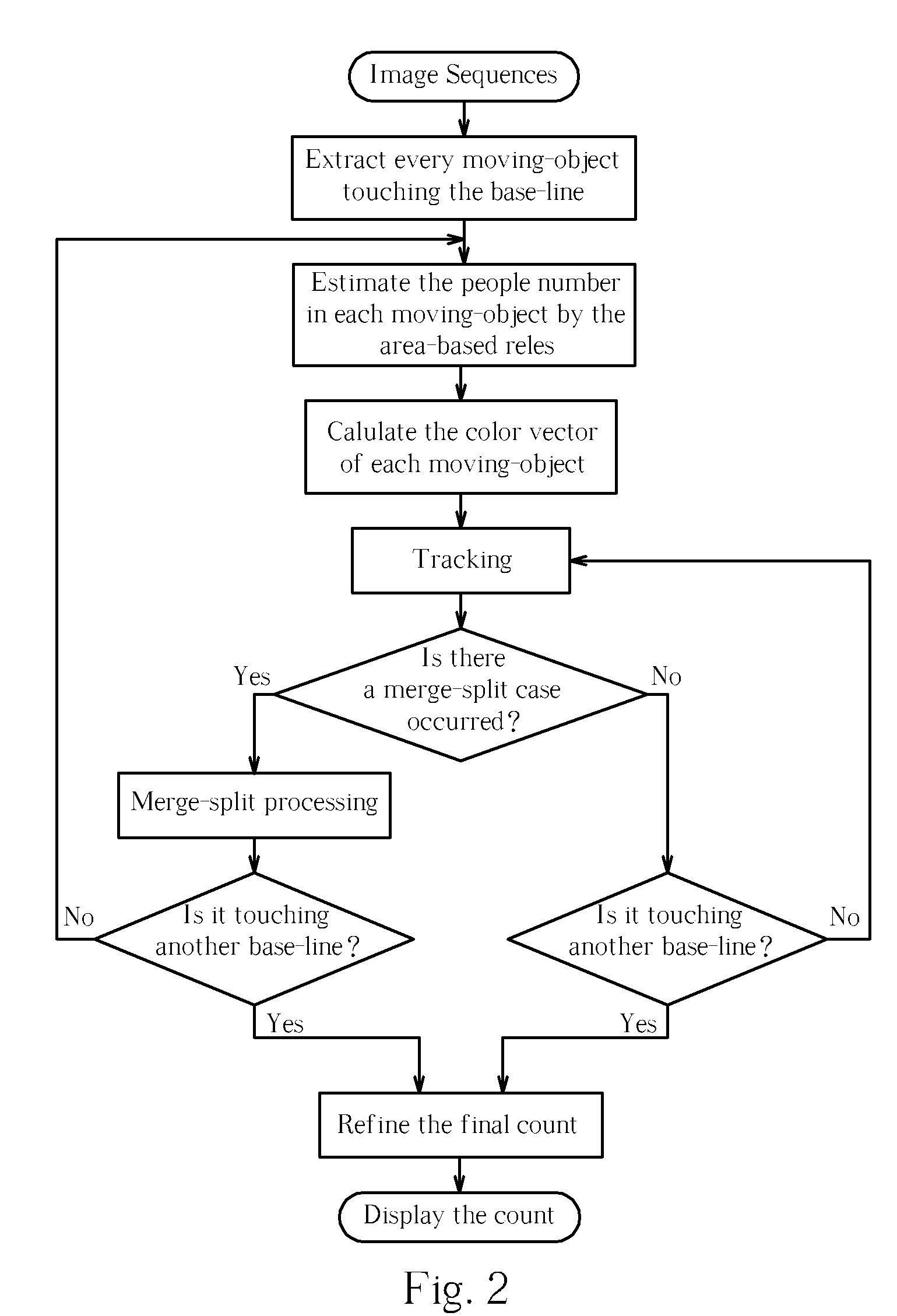Method for counting people passing through a gate
a technology for counting people and passing through gates, applied in the field of counting people passing through gates, can solve the problems of time-consuming system based on template motion estimation tracking, and inability to accurately count passing peopl
- Summary
- Abstract
- Description
- Claims
- Application Information
AI Technical Summary
Benefits of technology
Problems solved by technology
Method used
Image
Examples
Embodiment Construction
[0027]The present invention solves the problem of determining the number of pedestrians passing bi-directionally through a gate (or door). Based on analyses of area and color information in a segmented people-image, the inherent people-touching overlapping problem can be overcome. By a two-stage counting strategy, the area of pedestrian images segmented from the background is firstly used to count the passing people and then color information is utilized for refining the initial count. In the proposed scheme, one color video camera is set on the ceiling of the gate with a directly downward view so that the passing people will be observed from just overhead. By using frame differencing and segmenting techniques, the isolated people-image pattern, in which each people-pattern may be composed of one or more persons, as shown in FIG. 1, can be obtained. The people number of a segmented pattern may be changeable during the passing process because of the merge-split problem that will conf...
PUM
| Property | Measurement | Unit |
|---|---|---|
| color vector | aaaaa | aaaaa |
| area | aaaaa | aaaaa |
| sizes | aaaaa | aaaaa |
Abstract
Description
Claims
Application Information
 Login to View More
Login to View More - R&D
- Intellectual Property
- Life Sciences
- Materials
- Tech Scout
- Unparalleled Data Quality
- Higher Quality Content
- 60% Fewer Hallucinations
Browse by: Latest US Patents, China's latest patents, Technical Efficacy Thesaurus, Application Domain, Technology Topic, Popular Technical Reports.
© 2025 PatSnap. All rights reserved.Legal|Privacy policy|Modern Slavery Act Transparency Statement|Sitemap|About US| Contact US: help@patsnap.com



